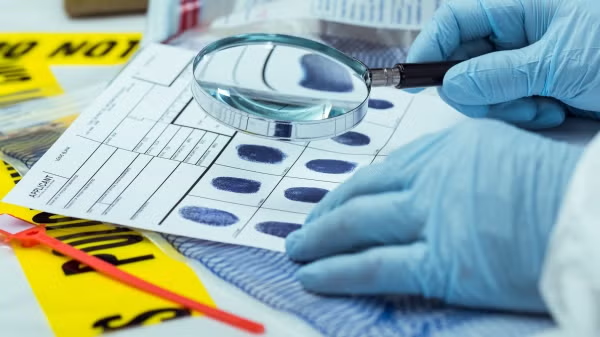News outlets, along with everyone else in the world, are sharing their facts, opinions and advice on COVID-19, the illness caused by the novel coronavirus. With the overwhelming information that’s available, how do you know how to sift through and find only what is accurate and necessary to keep you and your community safe?
Arizona State University researchers provide a few quick tips to protect yourself from fake or misleading news during this time.
1. Pay attention to where your news is coming from.
“If it's coming through your Twitter, Facebook or Instagram feed, don't think of it as information from those platforms, because it’s not,” said Scott Ruston, a researcher in ASU’s Global Security Initiative.
"Ask yourself, 'Who is this coming from and what is the background?' If the article you read makes accusations, ask yourself, 'Who does this benefit? What’s the underlying source material?' For example, the U.S. Department of State recently identified disinformation campaigns about the coronavirus in Europe," Ruston said. In those cases, strident claims about dangers to residents were made in order to undermine the government.
2. If you get information from social media, check the original source.
“When someone asks you where you heard something, if your first inclination is to say Twitter, you need to stop and check because Twitter itself tells you nothing,” said Kristy Roschke, co-director of the News CoLab in the Walter Cronkite School of Journalism and Mass Communication.
“Twitter gives people a feed of people who will tell you things," she said. "Ask questions like, ‘What's the actual post?’ ‘What's the thing that's telling you this piece of information?’ ‘Who is that person?’ 'Is it a media organization you've ever heard of before?’
"You can find all of that information in a Twitter profile. There's basic information you can find with a millisecond of extra effort. People who have credibility generally put information in their bios to bolster their credibility.”
3. Within news articles, examine the sources and how they are included.
“Look for how sources are treated and referenced,” Ruston said. “Journalists that work for traditional news outlets like AZCentral, CNN and the New York Times have a set of professional ethics guidelines and will assert their sources. The best is when the sources are named, the next best is when the names have been concealed for the protection of the source. However, it’s appropriate to be skeptical of articles that depend solely on unattributed sources without any kind of corroboration.”
4. Read beyond the headline.
“It's important to read the story fully," Ruston said. "Very often, headlines are misleading and are not there to inform you. The purpose of the headline is to get you to click on the link or to buy the newspaper, or to tune in if you're channel surfing.”
5. Get your news from a variety of sources.
People should check with additional news sources to confirm information they feel strongly about.
“If you read something and if your reaction is any sort of extreme emotion, outrage or unmitigated joy, that’s a clear indicator that you should definitely read more deeply,” Ruston said. “Many of the disinformation examples we’ve come across in our research are designed not to inform but rather to activate a strong anger or fear response.”
6. When you see your friends and family share misinformation, correct them.
“Always be kind when helping people identify misinformation. Don't insult people's intelligence," Roschke said. “Don't repeat lies, because when you emphasize the thing that they got wrong, they're actually cognitively more likely to remember the thing they got wrong. You want to provide them with new information that comes from a source as reputable as possible.”
7. Find out what other information is out there.
“I really believe in expertise, which is why I really like NPR as a news source because there is deep expertise both from perspective of journalistic integrity and in selection of credible sources,” said Nadya Bliss, executive director of the Global Security Initiative. “I've actually done this where somebody will tweet something and I would think, ‘That's interesting, I wonder if it's true.’ Then, I will go separately into a Google search and pull up the news articles on it and see what's written about that topic.”
READ MORE: Bliss gives further insight into combating misinformation about the novel coronavirus in the ASU Now article “How to combat misinformation when you need the truth the most” and on air with KJZZ.
The Centers For Disease Control and Prevention has the most up-to-date information about the status of the novel coronavirus in the U.S. Members of the ASU community can also check the Health Services Novel Coronavirus page for regularly updated information.
Written by Madison Arnold
More Science and technology

A spectacular celestial event: Nova explosion in Northern Crown constellation expected within 18 months
Within the next year to 18 months, stargazers around the world will witness a dazzling celestial event as a “new” star appears in the constellation Corona Borealis, also known as the Northern Crown.…

ASU researcher points to fingerprints as a new way to detect drug use
Collecting urine samples, blood or hair are currently the most common ways to detect drug use, but Arizona State University researcher Min Jang may have discovered something better.Fingerprints…

Learn about the secrets of forensic science straight from the experts
Over the next week, true crime enthusiasts will have a rare opportunity to discover the secrets of forensic science as experts share techniques for tracking down criminals.Behind Crime Scene…


